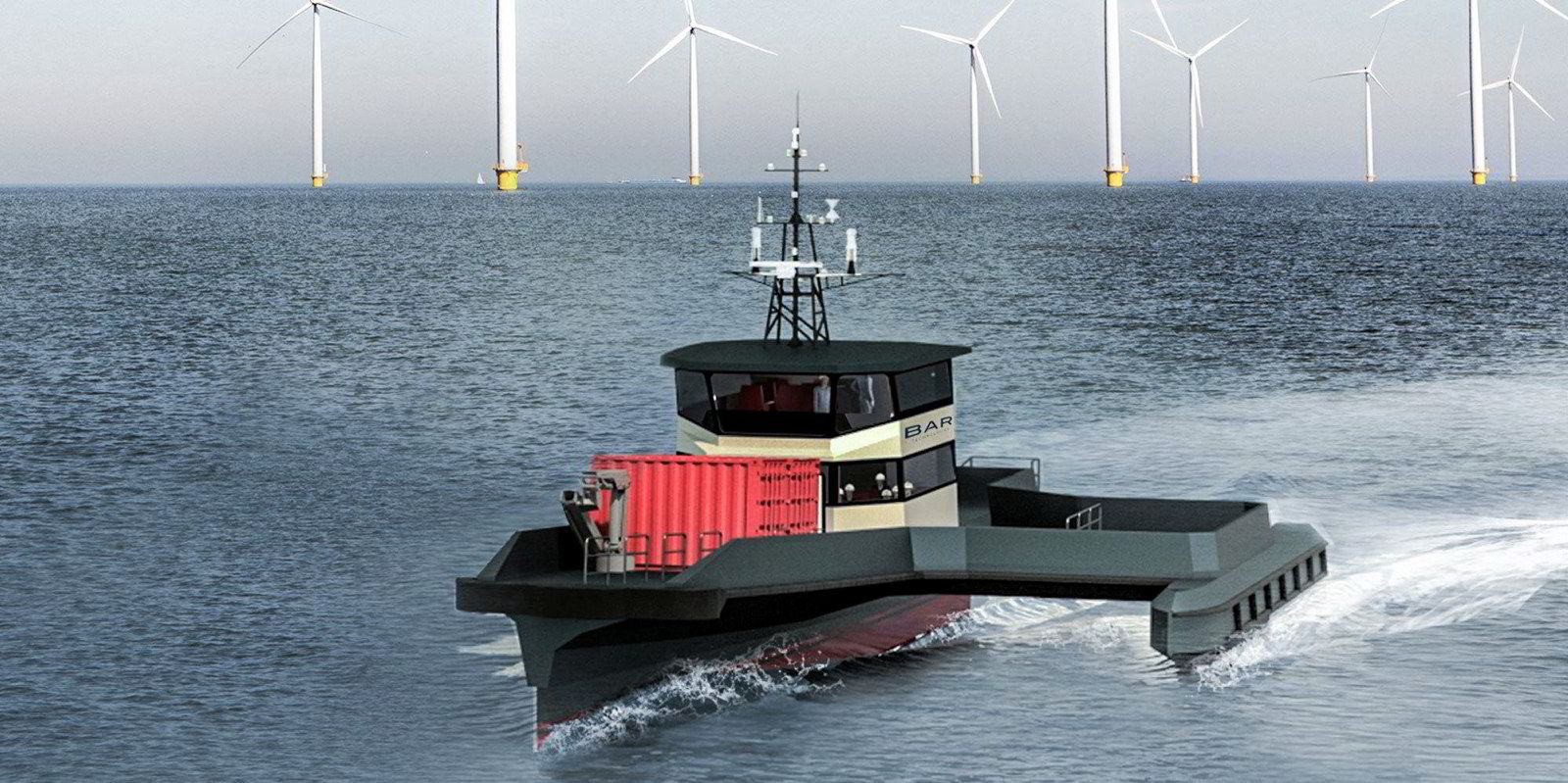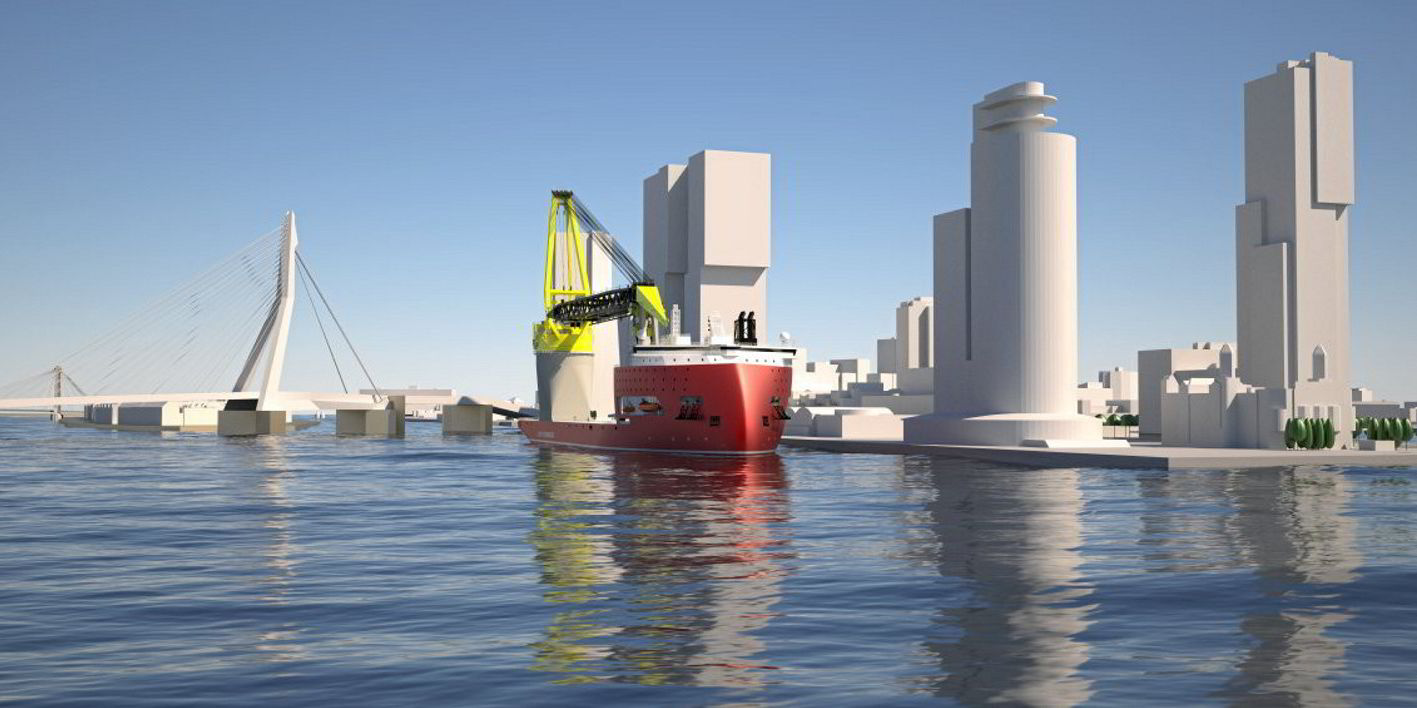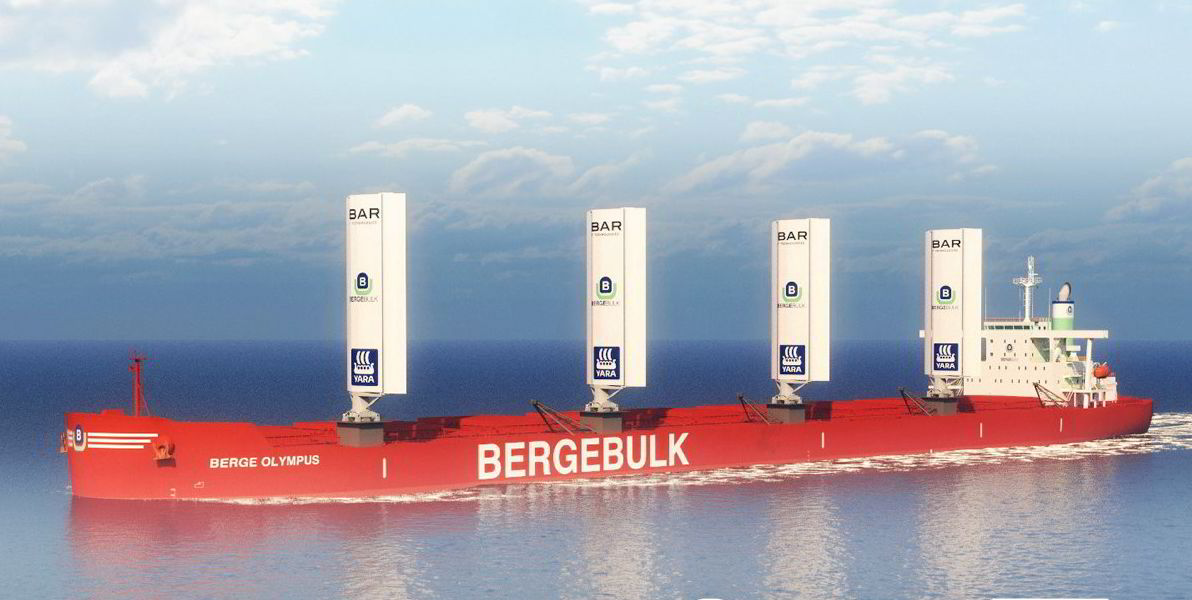Owners and operators of wind farm service vessels are under pressure to cut fossil fuel consumption, to get into line with the green aspirations of offshore wind developers.
If engineers travelling to offshore projects suffer from seasickness during transit, these vessels also have to take them back to port. That wastes fuel, money and time, and causes unnecessary emissions.
A new vessel has been designed to overcome some of these issues.
BAR Technologies — the UK-based firm that evolved from the former British America’s Cup yacht racing team and has been developing rigid sail wind propulsion technologies for deepsea ships — launched its first BARTech 30 crew transfer vessel in August.
Handed over to operator Seacat Services and named Seacat Columbia, the 30-metre-long narrow-hull vessel has a swath-style outrigger and two foil systems to correct for pitch and roll.
BAR Technologies said the foils and outrigger help minimise vessel motion and fuel burn. It claims they can give an up to 70% average increase in stability across all sea states and reduce total emissions by 30% over a typical operational profile.
It makes the Seacat Columbia, capable of carrying 24 personnel, one of the first low-emission vessels serving the UK’s offshore wind farms, the company said.
That it can operate in more challenging conditions than current catamaran designs should allow a greater number of offshore turbines to be serviced during harsh conditions.
Seacat Services and rival operator High Speed Transfers have ordered two BARTech 30 vessels.
“Having our first customer delivery is a key milestone in our development of the BARTech 30 programme, and we look forward to seeing further orders for the vessel fulfilled in the near future,” said John Cooper, chief executive of BAR Technologies.
A vessel supply chain for the UK offshore wind industry is developing: BAR Technologies is collaborating with naval architects Chartwell Marine and Isle of Wight-based builder Diverse Marine on design and construction, Cooper added.
BAR Technologies is also working on a larger version with the aim of replacing helicopter transfers. The BARTech 50 will aim to work safely in three-metre seas and travel at 45 knots in two-metre seas.
The company is best known in shipping circles for the WindWings sails it is developing. The wind propulsion equipment will be fitted on big bulkers and tested by shipowner Berge Bulk and charterer Cargill next year.






